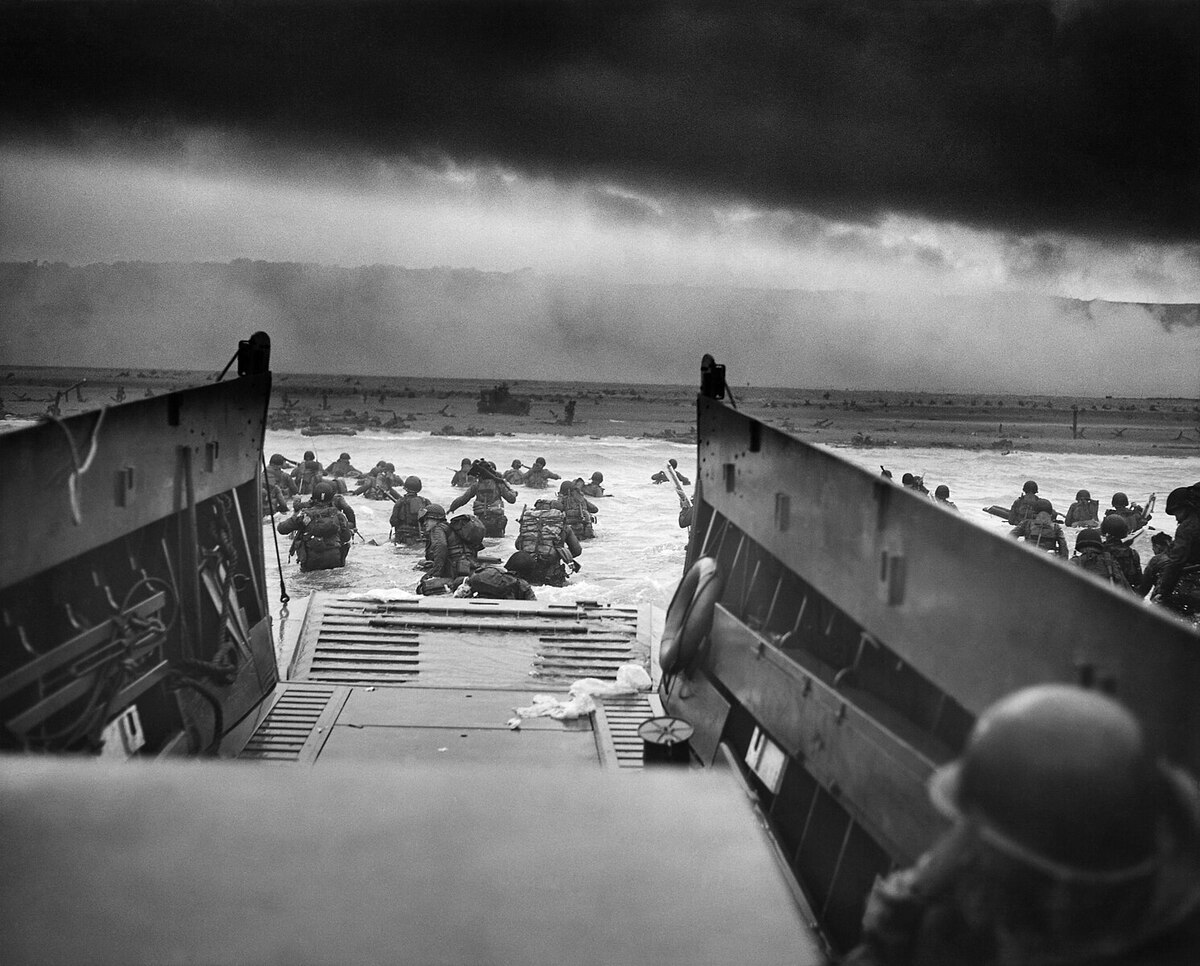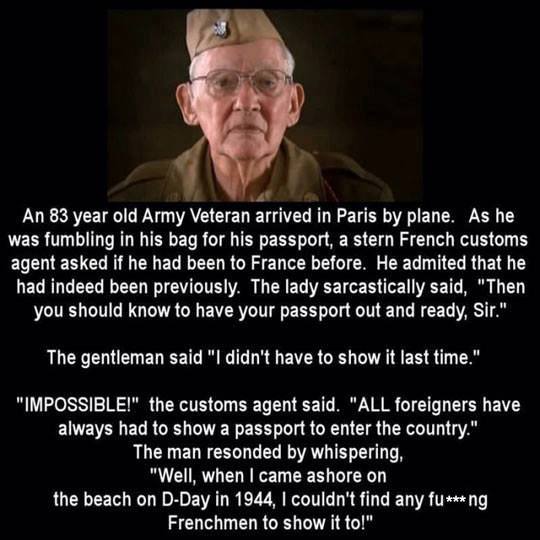
Posted on 06/06/2025 7:29:42 AM PDT by Diana in Wisconsin
June 6, 1944—a date etched into the annals of history. Known simply as D-Day, it was the start of Operation Overlord, the Allied invasion of Normandy, France, and the largest amphibious assault ever conducted. But beneath the surface of this widely remembered military operation lie lesser-known stories, unsung innovations, and strategic gambits that made this turning point of World War II both extraordinary and brutal.
The Massive Deception that Made D-Day Possible
One of the most overlooked elements of D-Day is the sophisticated web of deception known as Operation Bodyguard, a set of diversionary operations meant to mislead the German High Command.
The most famous sub-operation, Operation Fortitude, convinced the Germans that the main Allied invasion would come at Pas-de-Calais, not Normandy. To sell the lie:
The Allies created a fake First U.S. Army Group (FUSAG), led on paper by the legendary General George S. Patton.
Inflatable tanks, wooden aircraft, and scripted radio traffic created the illusion of a massive army ready to strike Calais.
German double agents, such as Juan Pujol García ("Garbo"), fed the Nazis false intelligence, which the Abwehr considered credible.
Even weeks after the Normandy landings, Hitler kept Panzer divisions stationed in Calais, expecting a “second, real” invasion.
The Role of Weather and the Decision to Delay
Originally set for June 5, the invasion was postponed due to poor weather. But a relatively unknown British meteorologist, Group Captain James Stagg, predicted a small 24-hour window of clear skies on June 6. Eisenhower trusted him—and made the call.
This decision was crucial. The Germans had not anticipated an invasion in bad weather. Field Marshal Erwin Rommel, Germany’s top commander in France, had even left for Germany to visit his wife on her birthday, believing no attack was imminent. Many key German commanders were similarly absent from their posts.
"Hobart's Funnies": The Engineering Marvels of D-Day
The British brought with them some unusual armored vehicles, many developed by Major General Percy Hobart. Known as "Hobart’s Funnies," these specialized tanks included:
Crocodile tanks – flamethrower-equipped Churchill tanks for clearing bunkers.
AVREs (Armoured Vehicle Royal Engineers) – tanks armed with petard mortars to destroy concrete obstacles.
Bobbin tanks – which unrolled reinforced matting over soft beach sand to allow other vehicles to drive over it.
Swimming Sherman DD tanks – amphibious Shermans with flotation screens and propellers.
These innovations played a crucial but often forgotten role in the success of the landings, particularly on Gold and Juno beaches. Behind Enemy Lines: The Airborne Gamble
The night before the landings, over 24,000 paratroopers and glider troops from the U.S. 82nd and 101st Airborne and the British 6th Airborne Division were dropped behind enemy lines.
But the drops were chaotic:
Many units landed miles off-course due to anti-aircraft fire and poor navigation.
Some American troops drowned in flooded fields—intentionally flooded by the Germans as a defensive measure.
Others, like those from the British Pegasus Bridge assault, executed precise glider landings under moonlight, seizing vital river crossings within minutes.
Despite the chaos, these airborne troops disrupted German communications, captured key bridges, and slowed enemy reinforcements. The French Resistance’s Hidden Contribution
French Resistance fighters played an underappreciated but essential role. In coordination with the British Special Operations Executive (SOE) and Allied command, they:
Sabotaged rail lines, delaying German troop movements.
Attacked communication hubs and supply depots.
Provided intelligence on German troop positions and terrain.
On June 6 alone, resistance cells carried out over 1,000 acts of sabotage. In some cases, entire German convoys were ambushed or delayed for days. Naval Gunfire and Undersea Minesweepers
While much focus is placed on the infantry landings, the naval aspect of D-Day was colossal. Over 6,000 vesselsparticipated, including:
Destroyers and cruisers providing direct fire support for troops under fire (the USS Frankford famously sailed within 1,000 yards of Omaha Beach to blast enemy emplacements).
Minesweepers cleared paths through German minefields, often under fire and with little armor.
In the lead-up to D-Day, X-Class British midget submarines planted navigational beacons off the coast—tiny subs crewed by four men, operating in freezing waters for days. The Aftermath: Holding the Beachhead Was Just the Beginning
Contrary to popular belief, success on D-Day did not guarantee victory in Normandy. The Allies had to fight for weeksto break out of the beachhead. The Battle of Caen, for example, lasted over a month and resulted in massive casualties.
German defenders, including elite SS Panzer divisions, mounted fierce counterattacks. Urban combat, bocage (hedgerow) fighting, and strategic blunders by Allied commanders turned Normandy into a grinding war of attrition.
Civilians in the Crossfire
Tens of thousands of French civilians were caught in the fighting. Allied bombing raids to disrupt German movements often hit villages and towns. Civilian casualties in Normandy from June to August 1944 are estimated at over 20,000.
This tragic toll is often forgotten but is part of the cost of liberation. Commemoration and Modern Relevance
Today, D-Day is more than a day of remembrance—it’s a lesson in coalition warfare, logistics, and the human cost of freedom. It continues to be studied by military academies worldwide as a case study in:
Joint operations
Deception strategy
Amphibious warfare
Civil-military coordination
But perhaps most importantly, it serves as a reminder of what’s possible when nations unite against tyranny. Conclusion: D-Day’s Enduring Legacy
Behind every beach and hedgerow of Normandy lies a story. Not just of tanks and tactics, but of human grit, sacrifice, and ingenuity. D-Day was not just the beginning of the end for Nazi Germany—it was a defining moment in world history.
As we commemorate June 6, we must look beyond the headlines and well-known images. Let us remember the meteorologists who changed history, the French saboteurs in the shadows, the paratroopers lost in fog and flak, and the engineers who built floating harbors and fake armies.
D-Day was not just won on the beaches—it was won in the shadows, in the sky, and in the minds of men who dared to defy the odds.

God bless them all.
Out of 16.5 million veterans of WW II, less than 70.000 are still alive.
I knew someone who had an uncle or something that was on Omaha beach on D Day. She said he said that you could barely take a step without stepping on a dead body.

Here’s an interview with Eisenhower 20 years after D-Day.
https://www.youtube.com/watch?v=vNaxTXfjfXk
Rommel was in charge of German coastal defenses. I recall reading somewhere that he visited almost every bit of it in person, and when he got to Omaha, he remarked how similar the terrain was to one of the landing spots chosen by the Allies in Italy somewhere, and beefed up the defenses there.
My fellow Americans: Last night, when I spoke with you about the fall of Rome, I knew at that moment that troops of the United States and our allies were crossing the Channel in another and greater operation. It has come to pass with success thus far.
And so, in this poignant hour, I ask you to join with me in prayer:
Almighty God: Our sons, pride of our Nation, this day have set upon a mighty endeavor, a struggle to preserve our Republic, our religion, and our civilization, and to set free a suffering humanity.
Lead them straight and true; give strength to their arms, stoutness to their hearts, steadfastness in their faith.
They will need Thy blessings. Their road will be long and hard. For the enemy is strong. He may hurl back our forces. Success may not come with rushing speed, but we shall return again and again; and we know that by Thy grace, and by the righteousness of our cause, our sons will triumph.
They will be sore tried, by night and by day, without rest-until the victory is won. The darkness will be rent by noise and flame. Men’s souls will be shaken with the violences of war.
For these men are lately drawn from the ways of peace. They fight not for the lust of conquest. They fight to end conquest. They fight to liberate. They fight to let justice arise, and tolerance and good will among all Thy people. They yearn but for the end of battle, for their return to the haven of home.
Some will never return. Embrace these, Father, and receive them, Thy heroic servants, into Thy kingdom.
And for us at home – fathers, mothers, children, wives, sisters, and brothers of brave men overseas – whose thoughts and prayers are ever with them – help us, Almighty God, to rededicate ourselves in renewed faith in Thee in this hour of great sacrifice.
Many people have urged that I call the Nation into a single day of special prayer. But because the road is long and the desire is great, I ask that our people devote themselves in a continuance of prayer. As we rise to each new day, and again when each day is spent, let words of prayer be on our lips, invoking Thy help to our efforts.
Give us strength, too – strength in our daily tasks, to redouble the contributions we make in the physical and the material support of our armed forces.
And let our hearts be stout, to wait out the long travail, to bear sorrows that may come, to impart our courage unto our sons wheresoever they may be.
And, O Lord, give us Faith. Give us Faith in Thee; Faith in our sons; Faith in each other; Faith in our united crusade. Let not the keenness of our spirit ever be dulled. Let not the impacts of temporary events, of temporal matters of but fleeting moment let not these deter us in our unconquerable purpose.
With Thy blessing, we shall prevail over the unholy forces of our enemy. Help us to conquer the apostles of greed and racial arrogancies. Lead us to the saving of our country, and with our sister Nations into a world unity that will spell a sure peace a peace invulnerable to the schemings of unworthy men. And a peace that will let all of men live in freedom, reaping the just rewards of their honest toil.
Thy will be done, Almighty God.
Amen.
Franklin Delano Roosevelt
On 05/06/1944, Army General Henry Miller was relieved of duty and reduced to his permanent rank of lieutenant colonel by General Dwight D. Eisenhower for breach of security. While drunk in a London hotel, Miller said to a fellow officer “On my honor the invasion will take place before June 15.”
Thanks for posting that prayer. I’ve heard it on YouTube and it is very somber and touching.
Thanks for posting that prayer. I’ve heard it on YouTube and it is very somber and touching.
I have something more than admiration for the men who did that, more like amazement.
I knew FReepers would add all kinds of great stuff to this post! Thanks!




After action report by Rommel stated he had enough forces to stop the invasion he just couldn’t get them there without taking huge casualties. Some German units in transit to Normandy area took 30% casualties before making direct contact with the enemy. Air superiority is everything.
You’re very welcome, Diana in Wisconsin.
Disclaimer: Opinions posted on Free Republic are those of the individual posters and do not necessarily represent the opinion of Free Republic or its management. All materials posted herein are protected by copyright law and the exemption for fair use of copyrighted works.